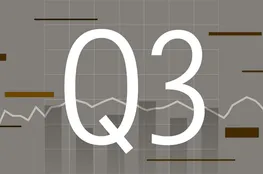If you call Texas home, it appears you might be carrying more debt than your counterparts in other parts of the United States. A recent study by LendingTree reveals that three Texas cities - Austin, San Antonio, and Houston - lead the country in average non-mortgage debt levels. By analyzing the credit reports of around 210,000 individuals, the research indicates that residents in these metropolitan areas owe significantly more than the national non-mortgage debt average of $37,827. Non-mortgage debts typically include obligations such as auto loans, student loans, credit card debts, and personal loans.
Among these cities, Austin stands out with the highest average non-mortgage debt at $45,920. Hot on its heels are San Antonio and Houston, where average debts are $44,812 and $44,640, respectively. Not far behind, Dallas ranks sixth among major U.S. cities with an average non-mortgage debt of $43,901. A large proportion of this debt across these cities can be attributed to auto loans. In San Antonio, residents seem to be struggling particularly with auto loan debts, averaging $18,303, a figure higher compared to $17,144 in Austin and $16,357 in Houston. Austin leads in credit card debt, whereas Houston residents are noted for having the highest student loan debts among these top three cities.
The debt situation isn't confined to Texas alone. Other U.S. cities featuring prominently on this list include Miami, Orlando, and Tampa, Florida, ranked fourth, seventh, and tenth respectively. Meanwhile, Atlanta, Georgia, claims the fifth spot, with Washington, D.C., Riverside, California, also figuring in the top ten. On the opposite end of the spectrum, San Jose emerges as the least indebted city in terms of non-mortgage debt, with residents owing an average of $26,704. Moreover, San Jose enjoys notably low student loan debts averaging $5,033 and personal loan debts averaging $2,923, among the 50 largest metro areas.
Overall, the data shows that nearly every city has a substantial proportion of its population dealing with non-mortgage debt. To put it in perspective, among all 50 U.S. metro areas examined, a staggering 97.1% of residents carry some form of non-mortgage debt. Credit card debt remains the most prevalent, affecting 85.5% of borrowers. Auto loans are held by 45.4%, while student and personal loans account for 25.7% and 24%, respectively. Austin again tops the list with an overwhelming 98.3% of residents holding non-mortgage debt. However, this isn't much higher than Louisville, Kentucky, which ranks 50th with 95.8%.
Including mortgage debt, the Federal Reserve Bank of New York reports a notable rise in total household debt. As of the second quarter of 2024, total household debt rose by $109 billion from the previous quarter, summing up to $17.80 trillion. Mortgage balances alone rose by $77 billion, reaching $12.52 trillion. Auto loans increased by $10 billion, pushing the total to $1.63 trillion, while credit card balances surged by $27 billion to a total of $1.14 trillion. This data highlights the growing financial obligations that American households face, especially prominently in certain Texan cities.
























